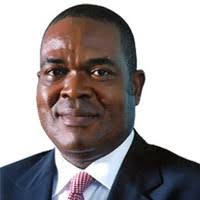By Marcel Okeke
Since Friday, October 31, 2025, when President Donald Trump of the United States of America designated Nigeria as a Country of Particular Concern (CPC), there has been a swirl of expected and unexpected developments within and outside of the country. Writing on his Truth Social account, the US President alleged that Nigerian Christians were being subjected to a genocide in their country.
“Christianity is facing an existential threat in Nigeria. Thousands of Christians are being killed. Radical Islamists are responsible for this mass slaughter,” Trump wrote. The US President said he had asked his country’s Department of War to prepare for quick military action in Nigeria, warning that other sanctions could also be applied. These pronouncements, coming from Donald Trump, have ruffled not a few feathers; causing trepidation, panic, speculations, and some ‘flight to safety’ by individuals, households and corporate organizations. The presidential pronouncements have also saturated the diplomatic space with all manner of conjectures; particularly with respect to Nigeria’s appropriate response, and Trump’s next line of action.
Howbeit, some of the things that are certain to unfold will include multi-faceted damages that the US’ President’s threats would unleash on Nigeria’s economy. In point of fact, whether President Trump makes good his threats or not, the Nigerian economy stands to suffer the ‘announcement effects’ of those pronouncements.
The whole world is a global village; and Nigeria’s listing among CPCs by President Trump, and backing it up with a military action threat certainly puts the most populous black country in the eye of the storm. Consequent upon this is that not a few countries would begin to look askance at Nigeria; opting to ‘wait and see’ and/or fully join Trump’s bandwagon.
Today, directly or indirectly, Trump’s pronouncements and ‘body language’ have started impacting the already massive emigration of Nigerians. Thus, for the first time in a long while, the Chief Executive of the Nigerian Immigration Service (NIS) disclosed few days ago that her agency “blocked 294 Nigerians from leaving.” The NIS Comptroller-General, Kemi Nandap, spoke in Abuja at a stakeholders’ sensitization seminar with the theme: “Evolving Patterns in Smuggling of Migrants: Towards a Coordinated National Response.”
Nandap expressed concern over the growing trend of Nigerians attempting to migrate irregularly, often driven by the perception of green pasture abroad—a phenomenon popularly known as “Japa.” And with the shape, form and timing of President Trump’s threatened military action on Nigeria not definite, not a few Nigerians would be joining the ‘Japa’ bandwagon to escape a possible hostility.
Whether by coincidence or not, Nigerian equities have been hit by losses for over a week since President Trump’s excoriation of Nigeria. Specifically, the Nigerian stock market slumped further on Monday (November 10), marking its seventh consecutive day of losses, as investors continued to ‘offload’ shares across major blue-chips.
The sustained sell-off since Nigeria joined the CPCs have wiped out about N4.64 trillion in market value, with capitalization nosediving by five per cent to N89.88 trillion; while year-to-date (YTD) gains dropped to 37.3 per cent. The All-Share Index (ASI) fell by 501 basis points, closing at 141,327 points, down from 148,781 points in the previous session.
So far, market sentiment has remained deeply negative, with broad-based declines across all major sectors represented on the Nigerian Exchange (NGX). The NGX30 Index, which tracks the 30 most capitalized companies, has also dropped by about five per cent to 5,177.40 points, down from 5,459.40 points.
Although some analysts attribute these outcomes to the market being in ‘correction mode’ following months of strong gains, it is obvious there is heightened investor caution and weak sentiment across key sectors. And this cannot be wholly divorced from the dampening effect of the uncertainty and panic unleashed by the ‘noose’ placed on Nigeria by joining President Trump’s CPCs.
The cautionary sentiment in the market would be founded on the fact that Trump’s threat includes possible economic sanctions, restrictions on US foreign aid, and the potential (negative) impacts on Nigeria’s international credit rating. The resultant strained diplomatic ties between the US and Nigeria would also create room for many of Washington’s allies to also ‘jilt’ Nigeria to remain in America’s good books.
Even as President Trump has been propagating nationalism (as against multilateralism and globalization), the US still takes along many of its allies when it comes to the imposition of economic sanctions. Should the US go ahead to place such sanctions on Nigeria, the already fragile Nigerian economy would be crushed.
For a while now, due to the tight monetary stance of the Central Bank of Nigeria (CBN), the Nigerian economy has been attracting substantial amount of Foreign Portfolio Investments (FPIs) due to in-built attractive yields (high rate of interest). So much ‘hot money’ has been attracted into the kitty of the CBN via the FPIs. However, the panic and uncertainty generated by President Trump’s threat on Nigeria are bound to scare both existing and potential investors. It is therefore not unlikely that part of the collateral damage of the Trump threat would be massive outflow of ‘hot money.’ This possibility has the potential to heighten the fragility and vulnerability of the Nigerian economy.
As the FPIs are ‘flying away’, foreign direct investments (FDIs) could also dry up completely. This is because no foreign investor would risk operating in a territory that is under the US’ military siege. If anything, the announced threat on Nigeria has the capacity to stall FDI deals; and exacerbate the exit of not a few other multinationals that have been proposing to leave Nigeria before now.
For over two years now, the President Tinubu administration has flaunted numerous FDI deals involving humongous sums, but with very little on ground. President Trump’s threat is therefore bound to ‘keep away’ many more of such potential and already sealed FDI deals. The quantum and direction of remittances by Nigerians in the Diaspora could also be affected by the Trump’s ‘hammer’ on Nigeria. Applying fiscal measures, including taxing of remittances to Nigeria, President Trump could go further to whittle foreign exchange (FX) inflow to Nigeria via this channel. For Nigeria, remittances are the second-largest source of FX, after crude oil earnings.In 2024, remittances accounted for about six per cent of Nigeria’s GDP. The country receives about 35-38 per cent of total remittances to Sub-Saharan Africa. Despite the CBN’s reforms, however, including exchange rate liberalization, overall remittance flow to Nigeria has been dropping. Should President Trump go the whole hog in his intervention in Nigeria, it is not unlikely that he would visit his disdain and ‘anger’ against the BRICS+ on Nigeria. In recent times, Nigeria has been in serious dalliance with the BRICS, to the extent of becoming a partial or full member. Yet, in the global arena, the US President takes the BRICS bloc as embodying all that Washington is opposed to: especially, whittling the global influence of the dollar.
In the circumstance, Nigeria stands between a rock and a hard place. If it refuses to do something fast in the face of the Trump threat, the impending (military) intervention and sanctions could become a reality. If the country suddenly chooses to renounce and jettison BRICS and others, it is also a tough journey. Whichever way, the Trump threat carries with it a lot of collateral damage for Nigeria. Time, really, will tell!

The author, Okeke, a practicing Economist, Business Strategist, Sustainability expert and ex-Chief Economist of Zenith Bank Plc, lives in Lekki, Lagos. He can be reached via: obioraokeke2000@yahoo.com (08033075697) SMS only




